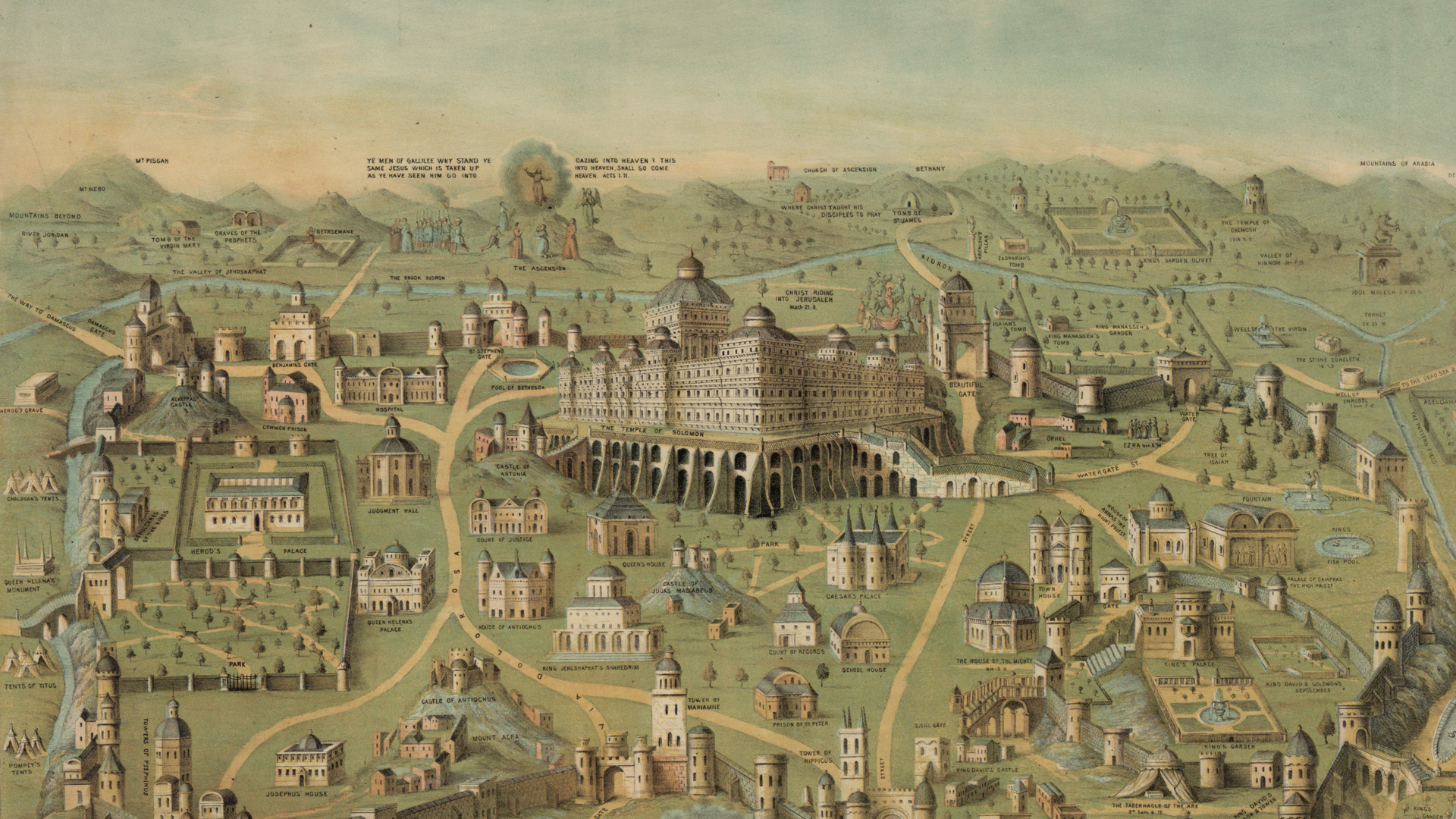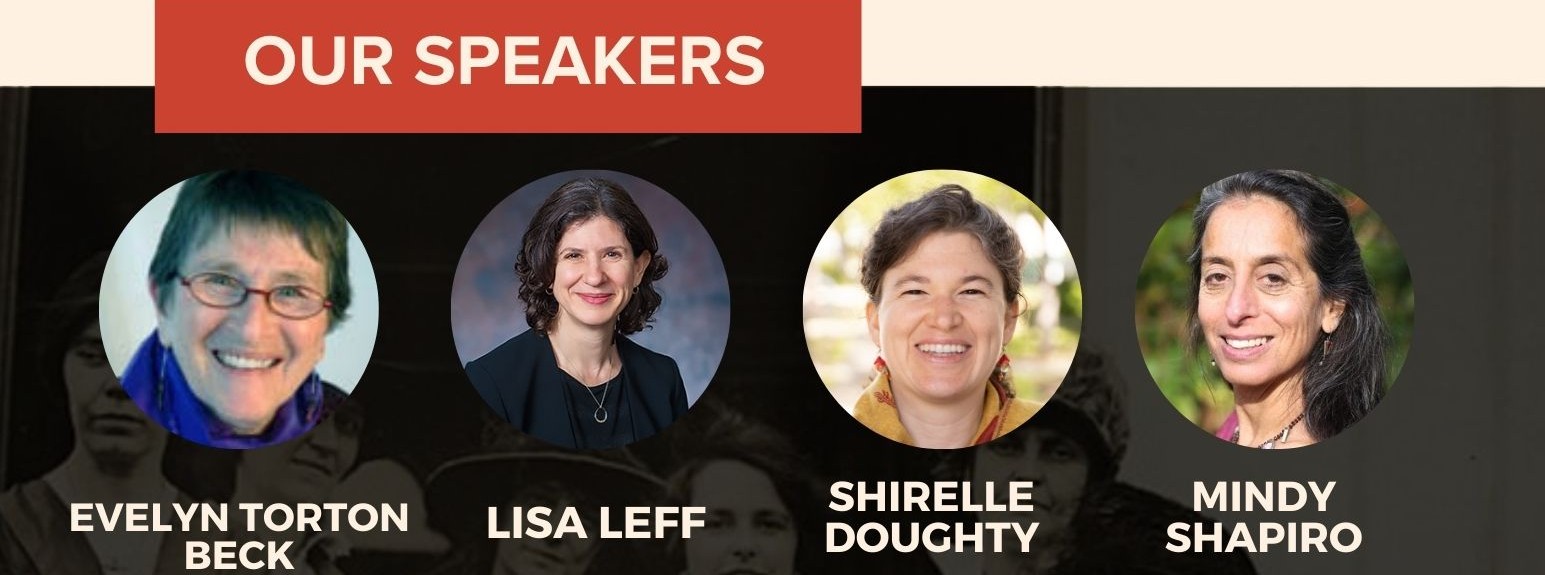University of Maryland Joseph and Rebecca Meyerhoff Program and Center for Jewish Studies Home
University of Maryland's Jewish Studies degree combines a liberal arts education with practical career skills that last a lifetime.
University of Maryland's Jewish Studies degree combines a liberal arts education with practical career skills that last a lifetime.
Whether focusing on the texts and artifacts of the ancient world, the laws and social order of rabbinic Judaism, or the diversity of modern and contemporary Jewish identity, Meyerhoff students learn the skills that matter most in our increasingly AI-driven world: critical thinking, independent analysis, and the communication of human-driven insights and ideas.
The interdisciplinary nature of Jewish studies offers students the opportunity to understand the history of experience of the Jewish people – and the complexities of the contemporary Jewish world -- with nuance and sophistication.
Explore Jewish and Israel Studies
Centers and Programs
Centers and Programs
The Jewish and Israel Studies programs at the University of Maryland are centers for intellectual inquiry into Judaism, the Jewish people, and Israel. Our diverse and vibrant community includes undergraduate and graduate students, faculty and staff, and friends and supporters both locally and around the world.
Undergraduate Students
Undergraduate Students
Whatever your background or current interests, academic Jewish studies offers an opportunity for independent meaningful engagement with the history, literature, culture, and society of the Jewish people. Bring your curiosity, your questions, and your challenges to coursework that explores the meaning of the Hebrew Bible, the complexities of Jewish law, and the intensity of Jewish theology and mysticism, while encouraging an understanding of their relevance in today’s rapidly-changing world.
Graduate Students
Graduate Students
The Meyerhoff Center and Gildenhorn Institute offer graduate programs for students to further their exploration into Jewish studies and Israel studies. Contact us directly to find out if our program is for you.
Faculty and Staff
Faculty and Staff
Use the directory to learn more about our specialists in the varied subfields of Jewish Studies and Israel Studies, or access resources for faculty and staff, including important information on campus policies.
Blank
Blank
Research & Innovation
The Meyerhoff Center and Gildenhorn Institute are dedicated to producing scholarly research that will inform and inspire today’s thought leaders and decision makers.
Explore our Current ResearchPublications and Activities
Polarization, Social Responsibility Journalism, and Collective Memory Discourse: The Case of Tisha B'Av 2023 Broadcasts
This study builds upon mediatized collective memory scholarship to examine how social responsibility journalism can seize upon memorial days.......
Author/Lead: Elie FriedmanRecent studies have explored how social responsibility journalism can serve as an antidote to polarization. This study builds upon mediatized collective memory scholarship to examine how social responsibility journalism can seize upon memorial days as opportunities to employ deliberative principles as guidelines for advancing social norms that counter polarization. Media discourse on Tisha B’Av provides a useful case study, as it is a national memorial day marking historical disasters that befell the Jewish people, attributed primarily to deep internal polarization and “baseless hatred,” a concept comparable to affective polarization. Thematic analysis of radio broadcasts reveals that journalists utilized collective memory scripts to point out the relevancy of Tisha B’Av, to characterize current polarization trends, and to call for public and media action to alleviate polarization, while implicitly referencing deliberative democracy principles. However, deliberative democracy ideals remain at the level of rhetoric. The discussion calls for further research on ways by which social responsibility journalism can utilize collective memory opportunities to counter polarization.
The personal is the (quasi-) political: The role of memes in critiquing and reproducing hegemonic narratives among reservists'
This study explores how digital humor functions as a form of critique in contexts where overt dissent is constrained.
Author/Lead: Elie FriedmanThis study explores how digital humor functions as a form of critique in contexts where overt dissent is constrained. Focusing on memes shared by members of a Facebook support group for Israeli reservist soldiers’ wives during the 2023 Israel–Hamas war, the study analyzes how humor helps negotiate personal and collective tensions. Using thematic and critical discourse analysis, we identify four spheres of critique—targeting spouses, social circles, institutions, and broader expectations. These memes convey frustration and resistance not through direct confrontation, but via irony and satire, allowing women to express grievances while remaining aligned with hegemonic national narratives. We conceptualize this as quasi-political expression, where personal complaints, framed humorously, subtly challenge and reinforce dominant discourses. By introducing this concept, the study highlights how individuals in ideologically constrained settings use digital culture not only to resist or reproduce power, but to navigate the blurred boundaries between personal and political life.
The first translation of this radical novel set at the heart of 1930s Israel/Palestine.
In late 1920s Palestine, Zalmen has just arrived at Jaffa port on his way to a small northern kibbutz. Young and idealistic, he hopes to put down roots and help create a model society. But he soon realizes that the power dynamics between British colonists and Jewish and Arab workers have reached a breaking point. Zalmen, caught in the web of ideological conflicts, violence, and revolution, must decide with whom his loyalties lie.
With frank depictions of political and ethnic tension, sexual freedom on the kibbutz, Labor Zionist politics, and rising Communist influences, Boom and Chains offers a rare glimpse of the Jewish left before the State of Israel and vividly illustrates the physical and mental toll of making a life in Mandatory Palestine. Author Hanan Ayalti's own journey resembles that of Zalmen and reflects his disillusionment with early Labor Zionism. The novel raises important questions around the development of discourse about Israel/Palestine, socialist Zionism and anti-Zionism, sexuality and sexualization, and Jewish left history over the twentieth and twenty-first centuries.




